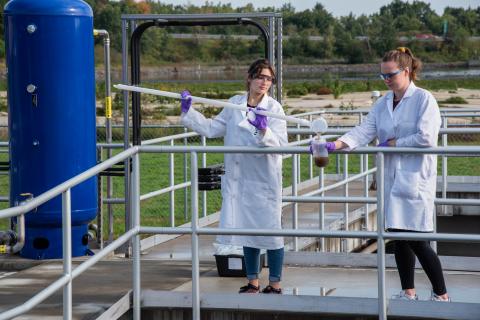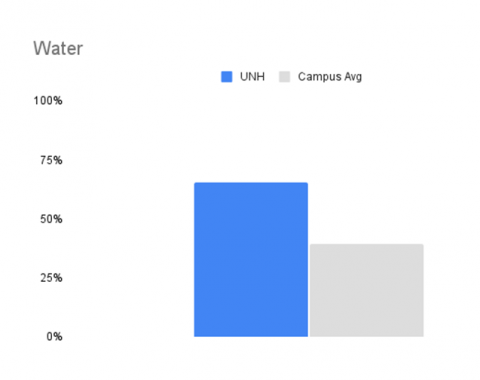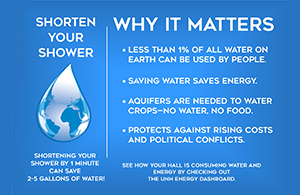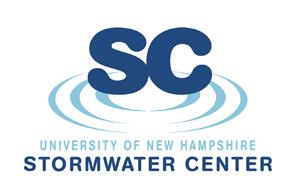Water
As a part of a coastal community within the Great Bay watershed, protecting and cherishing our water resources is a critical aspect of sustainable campus operations. This means promoting water conservation and efficiency, managing our stormwater and nitrogen pollution to protect water quality and furthering our understanding the challenges of “forever chemicals” in NH’s water supplies.
With a passion for sustainability, at one of the most sustainable universities in the country, I have had the opportunity to participate in cutting edge research on contaminants of emerging concern that cycle through the environment and threaten public health.
- Cassidy Yates ’20, ‘22G Read about Cassidy's research

Photo credit: Tim Briggs

STARS EVALUATION
WATER (3.92/6)

UNH earned 65.33% of total points available (3.92/6) compared to an AASHE member average of 39.35%.
STARS “seeks to recognize institutions that are conserving water, making efforts to protect water quality and treating water as a resource rather than a waste product.”
Water Conservation and Efficiency
Through efforts such as an ongoing Shorten Your Shower campaign, the use of low flow and WaterSense approved fixtures and equipment on campus, and the availability of UNH’s utilities dashboard that makes it possible to track water use by building, Facilities, Housing, and Hospitality Services work individually, and in partnership with the Sustainability Institute, encourage campus community members to conserve water.

UNH Stormwater Center
UNH Stormwater Center promotes and supports the protection of water resources through effective stormwater management. They research and develop effective stormwater treatment systems, and provide resources to campus Facilities, and surrounding communities and states.

Reducing Nitrogen Pollution
Nitrogen pollution poses a threat to Great Bay and other local waterways. UNH is collaborating with other local communities on an innovative and collaborative new approach to dealing with “non-point source” nitrogen pollution. The Ecosystem Task Force’s Watershed Working Group supports UNH’s implementation of “best practices” for minimizing nitrogen pollution from UNH operations; it is working to understand and publish UNH’s local nitrogen footprint, and to establish a local nitrogen reduction goal and action plan.

Researching PFAS
UNH researchers are expanding our understanding of “forever chemicals” that come from wastewater and make their way into water supplies; this cutting-edge research is helping inform wastewater management approaches throughout New England.


